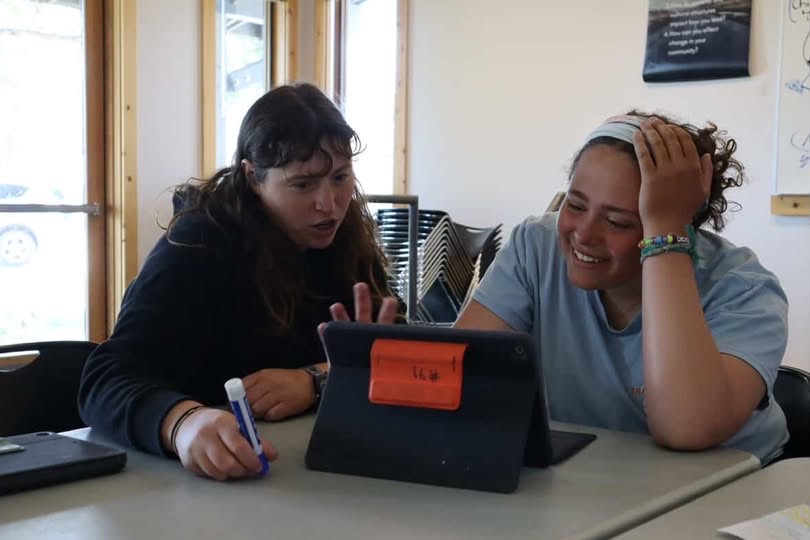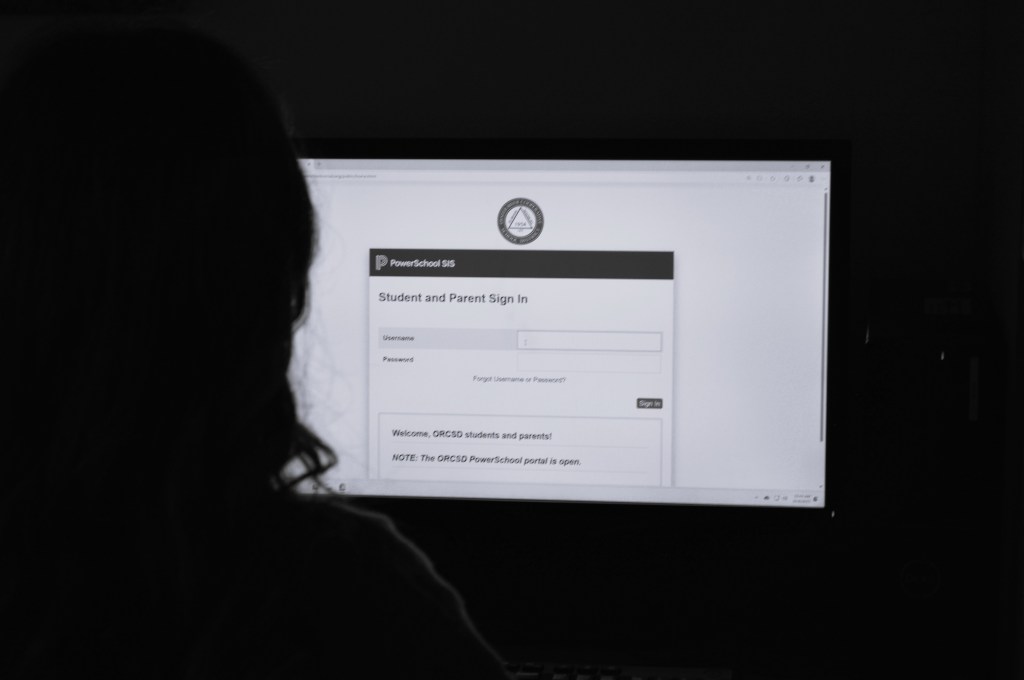Editor’s comment, 6/13/2022: Since Mouth of the River published the article “Rachael Blansett Confirmed as the ORCSD’s First DEIJ Coordinator” on June 2nd, significant controversy has arisen surrounding Blansett’s hiring and the creation of the position. Much of this discussion has taken place underneath links to the article. MOR’s editorial board would like to clarify that the Mouth of the River is a student publication and does not represent the SAU or the ORCSD administration. This article was intended to inform the community about Blansett’s hiring, not to serve as an official hiring announcement. The editorial board also encourages the community to remember that this article was written and edited by students. We ask that readers remember the values of kindness and compassion that are emphasized in our district and make the choice to treat the writer, the new DEIJ coordinator, and each other with civility.
This evening, the ORCSD school board voted to approve Rachael Blansett as the district’s first ever Diversity, Equity, Inclusion, and Justice (DEIJ) Coordinator. This decision, made after deliberating for almost half an hour in a non-public session, is the culmination of years of work and marks Oyster River’s commitment to DEIJ by joining the small list of New Hampshire school districts with this type of position.
As the DEIJ Coordinator, Blansett will work with teachers, administrators, and students to integrate DEIJ throughout the district. She will lead trainings for teachers, revise curriculums so they align with district values of equity and inclusion, and act as a resource for anyone in the Oyster River community to ask questions about DEIJ. This position’s creation has been in the district’s strategic plan for the past three years, and after significant work from administration and the DEIJ committee, Blansett has been hired to fill the role.
ORHS social studies teacher Jaclyn Jensen is on the DEIJ committee and was part of the job creation and hiring process for the coordinator. She said that the position is necessary because while there is great work being done towards equity at all the different schools in the district, these efforts aren’t always as organized and collaborative across schools as they could be. “To have a person to be the coordinator of all that just makes sense, to be efficient and to facilitate collaboration,” she said. Jensen compared the DEIJ Coordinator to a conductor of an orchestra, saying, “everybody’s playing their instrument, but there’s somebody who’s directing it all. And that is important for the success of the overall district.”
Superintendent Jim Morse adds that another key aspect of the DEIJ Coordinator’s work will be supporting teachers in implementing DEIJ in their classrooms. Some teachers are unsure of even where to begin, while others are interested but, as Morse puts it, “are incredibly busy teaching.”
Morse’s vision for the role is that Blansett will shoulder much of the burden of finding diverse books and resources for teachers to use, and will serve as a sort of “onsite, available researcher” for bringing DEIJ into the classroom. Teachers will also be able to ask Blansett questions about how to better support their marginalized students. Blansett will even be available to go into classrooms and co-teach should a teacher want help in discussing difficult topics like discrimination. “Really, it’s limited to the imagination of our educators and Rachel’s time. [The DEIJ Coordinator position] is going to open up a resource that we’ve never had before,” said Morse.
Jensen said that another benefit to hiring a DEIJ Coordinator is that it gives students a resource to come to about identity and belonging, but who isn’t a teacher or in a position of power over them. She said that all students, but especially those with marginalized backgrounds or identities, need someone to come to about issues they’re having in the district, and this position will create a great person to come to.
“Ultimately,” said Jensen, “it comes back to supporting students, helping teachers support students… and being a point person to facilitate that collaboration and work across different spoke sectors or spheres in the school.”
Vivian Jablonski is another ORHS teacher and DEIJ committee member who was on the hiring committee. She said that working on this position “kind of felt like a pipe dream” because of how long she and others on the committee had been advocating for a DEIJ Coordinator. “To have it actually be coming to fruition was cool,” said Jablonski.
The interview committee held all their interviews on the same day, staying at school from noon until eight at night. After the interviews, the committee chose two finalists, who were each invited to spend a day getting to know the district to determine if they were a good fit. Both finalists were given tours of the district, in addition to meeting teachers from all four schools, students from the ORHS DEIJ club, and community members. Everyone who met the finalists was given a notecard to share their thoughts about them with Superintendent Morse, whose responsibility was to decide on the final person to nominate to the school board. Morse read through the community’s notes and then spent time with each candidate (4 hours with the other finalist and 6 with Blansett) so they could ask any questions and really get to know each other. Then, he made his decision.
Morse said he chose to hire Blansett because of “how articulate she was and how she engaged the interview committee. She really was the number one candidate coming out of that interview process. Her answers were thoughtful, they were engaging, they were human. They were respectful, but also challenging. I think all of those things will feed into her being a wonderful DEIJ coordinator.”
Blansett also brings a strong background with her to the ORCSD. She has done DEIJ work at universities on the west coast and in New England, as well as having experience running workshops at the K-12 level. Additionally, she has what Morse called “lived experience” as a young woman of color who grew up in a situation of poverty and was a first generation college student.
Morse said that while some teachers were hoping that the DEIJ Coordinator would have teaching experience, he believes that these lived experiences still make her extremely qualified for the role. He said, “in this particular instance, we didn’t need somebody who had been a teacher, because our teachers know how to teach. It really was about how this person can bring the resources so that our teachers can enhance their work around DEIJ and support the school system as it grows in this work. To me, the most important part of the decision was finding someone who could articulate their lived experience and help teachers when they have questions.”
Blansett’s background stood out to Jablonski, too. She said that even before her interview, Blansett was one of her top choices for the position because of her resume. Because Blansett was the first DEIJ coordinator at another university, Jablonski “was already thinking that she would be a really good fit—someone who literally was in the same first position at another place.”
Blansett’s place at the top of Jablonski’s list was solidified in her interview, where Jablosnki said “she just wowed the whole group.” Jablonski saw the same traits that Morse noticed in Blansett, appreciating her ability to articulate, get to the point, and give specific examples in response to questions. Jablonski also said she “could picture her speaking to people in our district or parents that might have questions or might not be fully on board with why we need this position. I could see her being able to carry on a productive conversation, and that was really good.” It seemed to Jablonski that Blansett was genuinely interested in getting to know people and form connections, which stood out in comparison to other candidates.
Jablonski says one of her big hopes for the new coordinator is that she will improve professional development around DEIJ topics, an area that she feels has been lacking. She hopes that Blansett can “also be someone who’s willing to make waves a little bit” in order to bring positive change.
Now that Blansett has been hired, the ORCSD community can get to know her even more and work with her to make the district more just and equitable for all.
– Zoe Selig
Featured image courtesy of Carsey School of Public Policy Website






Leave a Reply